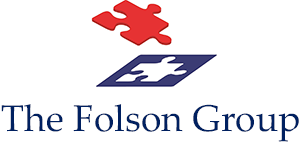Better Budgeting
What’s in your coop or condo ’s budget?
The fourth quarter is when New York City coop and condo boards are working with their property manager on setting next year’s budget. Setting realistic budget goals for your coop or condo is necessary to be able to pay for the building’s expenses. When you, as a coop or condo owner, receive a letter from the board or property manager telling you how much your maintenance or common charges are increasing, it is (if done correctly) to cover the costs in this budget. If you own your apartment in NYC, you may be curious as to what those costs are. Here’s a simple breakdown;
Operating expenses:
The operating expenses in a NYC coop or condo are all those recurring on a regular basis that it takes to maintain and service the building itself for an entire year. This includes utilities, which provide coop and condo buildings with heat, water, and electricity. Did you know that in NYC, landlords are required to provide their residents with heat and hot water? While there are different parameters that make up city mandates, and most buildings exceed minimum requirements, the most basic is that heat must be on from October 1st to May 31st.
A building’s electricity cost is split between the common areas and the apartments. The common areas like hallways and lobbies are included in the maintenance, whereas the residents are responsible for their own electricity cost either through their own account with ConEd, also referred to as direct metering, or through submetering. The submetering is for buildings that are master metered, where the building can either include the cost of electricity in the residents’ maintenance, or submeter it to the residents.
Operating expenses also include supplies like cleaning supplies and garbage bags.
Also included in operating expenses are the many building code compliance items that keep the residents, visitors, and the staff save. Most larger buildings also have a property management firm that manages the administration.
Repairs and Maintenance:
While repairs are simple enough to understand, those include paint jobs, small scale projects like leak repairs, various electrical work and much more. The maintenance service contracts for an apartment building include maintenance service contracts for elevators and exterminators alike.
Administrative Costs:
These are things like printing paper, copies, postage and messenger services, cloud storage, and many others.
Financial Costs:
The financial costs are exactly that, the ones that are associated with the financing of the building, of building projects, as well as taxes.
In coops, the NYC real estate tax is a huge burden, accounting for approximately 50% of the total budget, with most buildings being in the 40-60% range. NYC condo owners receive their real estate tax bill directly from the city, so this is therefore not included in the condo’s budget.
Mortgage: Most NYC coops have an underlying mortgage, and the interest and principal payments are included in the budget. In condos, only the supers’ apartment can be mortgaged, so their mortgage and payments are typically much smaller than in a coop.
Capital Improvements:
The capital improvements in a building are larger projects, the building’s CPA can verify whether the project qualifies tax exempt to avoid sales tax. As per New York’s Certificate of Capital Improvements, ST-124, these are projects that does not include the sale of any items that will not become a permanent part of the real property (for example, a free-standing microwave or washing machine). Most vendors know what projects qualify for the sales tax exemption. The Façade Inspection Safety Program, FISP, is a huge cost for NYC buildings and need to be carefully planned and funded.
Budgeting for a co-op and condo is a job that comes with tremendous responsibility. Since budgets are predictions and forecasts of the future, it is important to involve individuals in the process that will help you gain insight in new ways. Coop and condo boards should build a team of people that can bring their professional skills to the budgeting table. This might mean working with the property manager, CPAs, engineers, consultants, and board committee members as well as tapping into the expertise of any residents of the building.
If you have any questions on how to set a 5-year budget for your coop or condo, including minimizing the upcoming fines as part of Local Law 97, reach out.
At The Folson Group, we are passionate about helping every NYC coop or condo owner increase their property values while living in a building that is run like a business. Contact us today to find out more.

